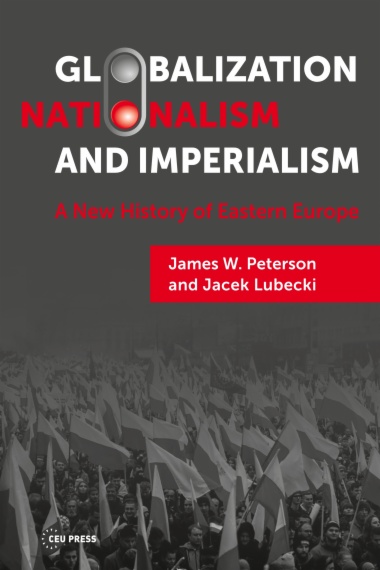The authors of this book retell the political and economic history of East-Central Europe, the post-communist Balkans, and the Baltic states and speculate about their future from the vantage point of three competing forces operating in the region: territorial imperialism, globalization, and nationalism.
Exposed to imperial aspirations, the geographic area from the Baltic Sea to the Black Sea has in the past 150 years been subject to alternating waves of globalization and nationalism. The nineteenth century Eastern European empires were open to forces of economic globalization, but all collapsed at the end of World War One. Emerging nation-states embraced the logic of Western-led globalization but were subjugated by Nazi and Soviet empires, which pursued policies of economic autarchy. The demise of the Soviet empire marked the revival of pre-1939 nation-states and the re-entry of forces of liberalism and globalization into the region, with multiple crises of economic transition, ethnic militancy, new forms of authoritarianism, and external security threats. By 2010 negative, nationalist-populist reactions against crises that globalization brought to Eastern Europe became the dominant political trend. The analysis involves the consideration about the very contemporary factors of Brexit and COVID, as well as Russia’s and China’s influences, and their effects on Eastern Europe.
- Cover
- Half Title
- Title Page
- Copyright Page
- Table of Contents
- List of Tables
- Chapter 1 Introduction
- Nationalism, Imperialism, and Globalization in the Shaping of Eastern Europe
- Background of Theories
- Chapter 2 Dialectics of Globalization: Empires and Nationalism
- Control by Empires Prior to WW I, 1815–1914
- Emergence of Nation-States after 1918
- Nazi/Fascist Empire, 1930s and 1940s
- Communist Empire, 1945–89
- Post-communist Expressions of Nationalism after 1989
- Chapter 3 Liberalism and Anti-Liberalism
- The Spread of Liberalism and Its Discontentment
- Successes of Liberalism and Persistence of Anti-liberalism
- Conclusion: Eastern Europe between Nationalism and Globalization
- Chapter 4 Ethnic Challenges from Within and Without
- Ethnic Warfare and Conflict within the States
- Migratory Pressures from the External Environment
- Theoretical Conclusion
- Chapter 5 Domestic and Global Security Challenges
- Terrorist Threats inside the State
- Russian Imperial Challenges after Crimea Takeover, 2014
- Theoretical Conclusion
- Chapter 6 The Cloud of COVID-19 as a Global Pressure on the Region and Its Individual States, 2020 and After
- Key Historical Differences
- Impact of COVID-19 on Democratic Ratings
- Selected Case Studies of Political and Administrative Decisions during the 2020–22 Virus
- Election Outcomes during the Crisis Years
- Theoretical Conclusion
- Chapter 7 Conclusion: Imperialism, Globalization, and Nationalism in Eastern Europe in the Twenty-First Century
- Imperialism
- Globalization
- Nationalism
- Theoretical Conclusions
- Bibliography
- Index
- Back cover

